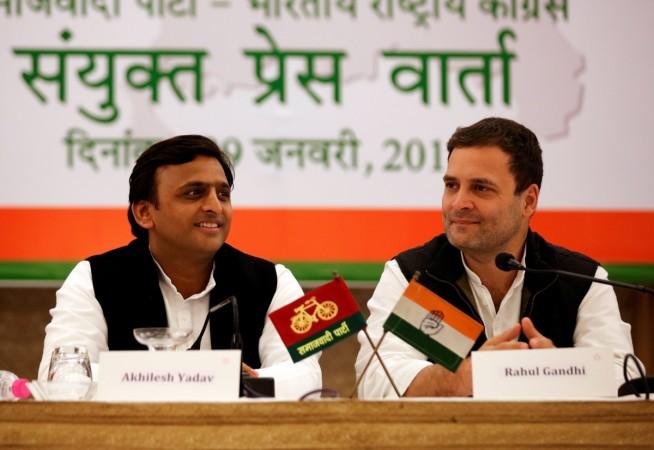
Prime Minister Narendra Modi and his party, the BJP, may mock Congress vice-president Rahul Gandhi (they have taken on former prime minister Manmohan Singh as well) time and again this election season, but it will not be easy for the saffron party to beat its opponents in Uttar Pradesh. The first of the seven phases of the Assembly election is taking place in the state on Saturday (February 11).
Follow the live updates of the 1st phase of the UP Assembly Elections 2017 here
The alliance between the ruling Samajwadi Party (SP) and Congress for this election is not a no-brainer as many BJP leaders are trying to project. For the commoners, the strong anti-incumbency mood against the SP after its forgettable five years of rule will see a change of guard in Lucknow this time. But Akhilesh's coup of sorts in a party that had too many old-timers jostling with each other just weeks ahead of the election could give a welcome boost to the party.
Perception matters in politics
The general impression that Akhilesh is a good man who could not work in a crowd of 'unethical' Yadavs is going to do him good, for perception plays a big role in politics, especially in India. If the SP really had a hopeless position a few months ago, the rise of the young leader who has a positive image, thanks to his populism besides taking on the 'evil', could make the party a Phoenix. In a state which is trapped in the vicious cycle running from Mulayam to Mayawati to the BJP's evergreen Ram Mandir ambition, the 43-year-old Akhilesh could be the game-changer.
Congress may have very less seats but its voter-base is ubiquitous
Yes, everyone believes that the grand old party is a non-performer in election these days, but just as a sinking ship also occupies space, the Congress still has a relevant vote-share, especially among the anti-Hindutva voters. In Bihar, Chief Minister Nitish Kumar had benefitted in the 2015 Assembly election, even if just so, by having the Congress in his Mahagathbandhan. Apart from the Muslims, a section of the upper class voters supporting the Congress can prefer the alliance in UP this time, for they do not find Akhilesh as repulsive as his father Mulayam – the reason being the CM's honest will to enforce a rule of law in the state amid all the chaos.
BJP also has other concerns
The BJP will also be worried over certain other factors. First, unlike in the 2014 Lok Sabha election when Modi and Co. were a like a promising autumn, this time the NDA government at the Centre has already gone past its halfway stage in office. So just like the SP, Modi will also face an anti-incumbency in the state which his party had swept overwhelmingly. The fulfilment of the several promises that Modi had made during the pre-election days, has also not been satisfactory for many.
Also, the issue of demonetisation. For the suave urban class, the push for going digital is a great step but for a state like UP which is among the least urbanised, banning of notes has hit the livelihood of a large section of people, besides killing several small and medium-scale jobs.
Finally, there is the lack of any polarisation and counter-polarisation, which had helped the BJP in 2014.
Party president Amit Shah had tried to revive the old debate of Ram Mandir a few days ahead of the election but the entire focus was so much on the squabble within the SP that Shah's rhetoric did not gain much traction. As they say, negative publicity is positive publicity, and so the drama in the SP could prove to be a blessing for Akhilesh, and not Modi. Lack of a chief ministerial candidate in the state and the prospects of the Dalit votes returning to Mayawati – another formidable opponent in this election – will be other headaches for the BJP.
Modi-Shah will only hope that the Muslim votes get divided
The BJP has two major hopes. One is Modi's own image and aggressive campaigning for development, rule of law and clean governance which has been a perennial problem in UP's administration. The other is the uncertainty over the Muslims' voting behaviour. This time, 26 out of 140 crucial seats will see a face-off between the SP and Mayawati's Bahujan Samaj Party. If the Muslim votes get decisively divided, then the BJP would be the beneficiary but if they vote en masse to teach the saffron party a lesson, then the Modi-Shah duo has a serious challenge on its hand.














